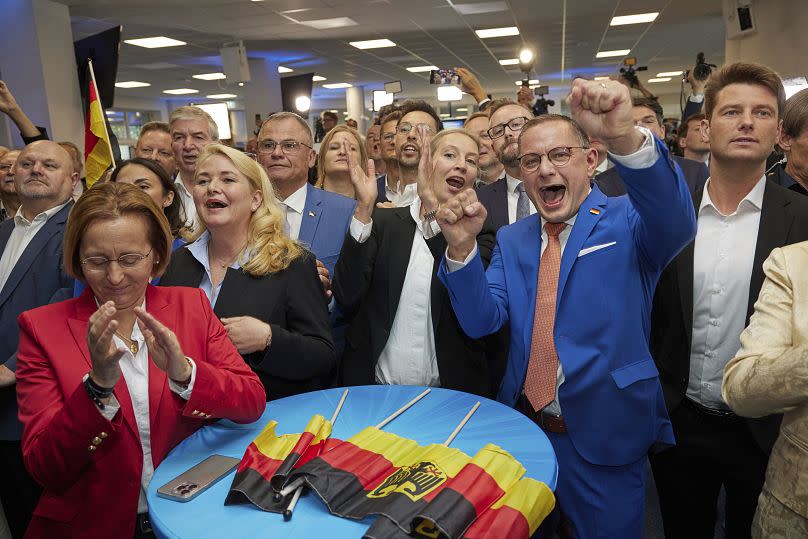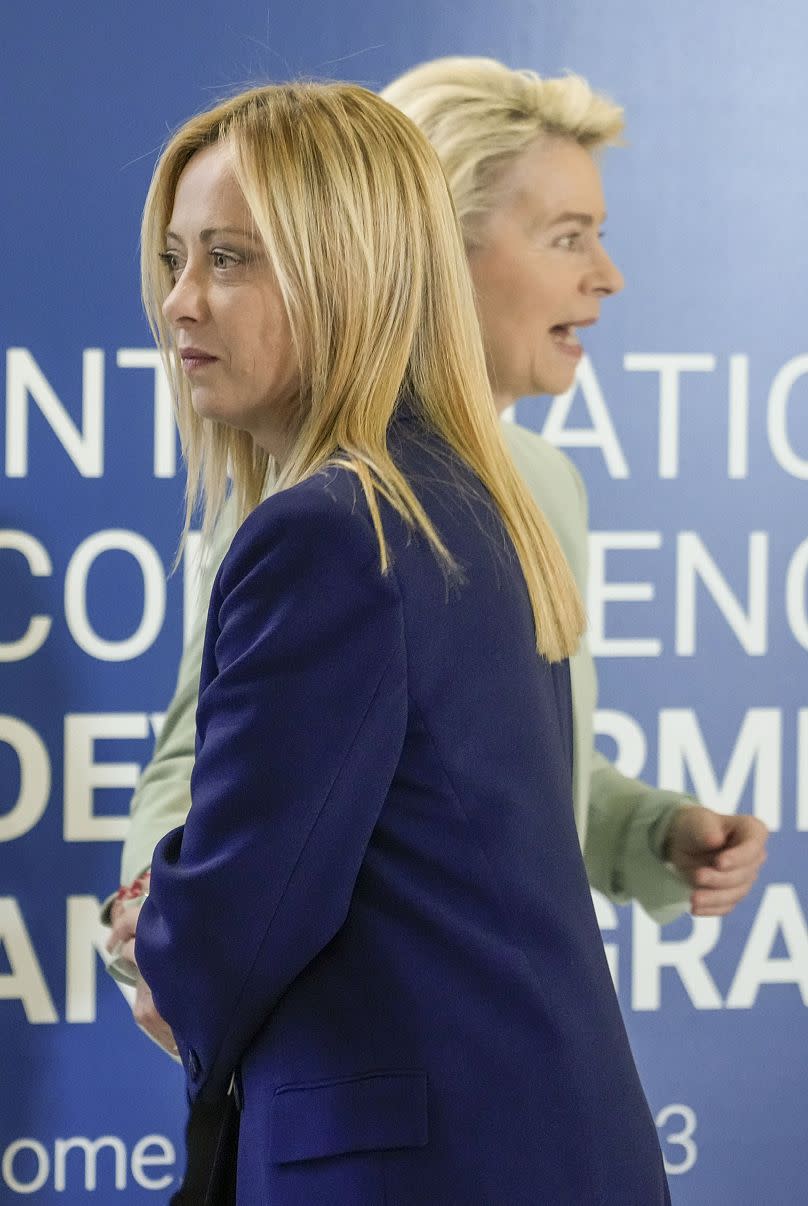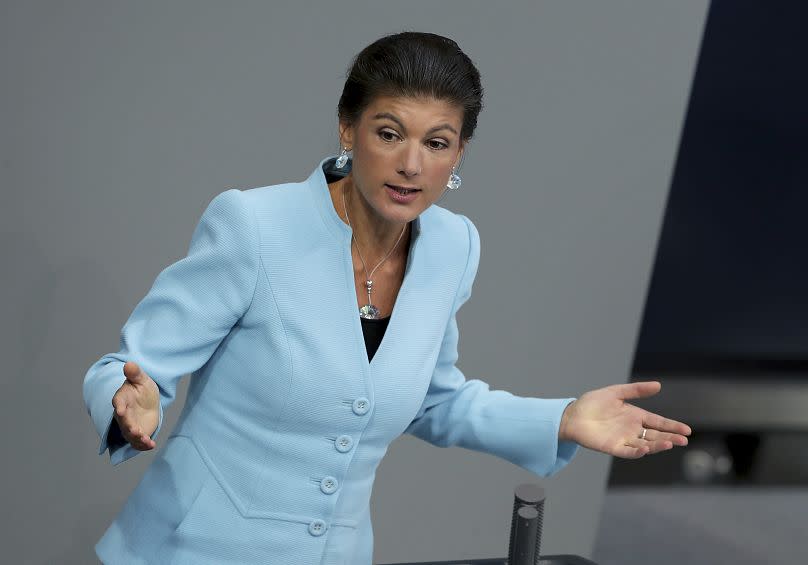Why will radicals from both right and left be loose cannons of new EU Parliament?

A surge of unconventional parties is set to enter the new EU Parliament, collectively representing as many as 100 MEPs. This marks the first occasion where larger, established party groups will need to navigate a significant presence of politically unpredictable forces.
Of these members of the European Parliament, 46 belong to non-affiliated groups, while 56 are temporarily seated with the yet-to-be-inscribed deputies list—newcomers seeking political affiliation. Technically, they are "newly elected members not aligned with any of the political groups established in the outgoing Parliament."
The considerable size of both groups will directly or indirectly influence the formation of new coalitions, given their radical or eccentric positions within the general framework of the EU Parliament.
"Can these fringe parties, these challenger parties really force the mainstream parties into making ideological concessions, into repositioning themselves more to the left or more to the right?" Wouter Wolfs questions, a lecturer of European Politics at the Catholic University of Leuven (KU Leuven).
"And if that's the case, it could potentially complicate consensus-building at the European level. This poses a significant challenge because the European Parliament typically operates effectively only when there is consensus among the main mainstream groups," Wolfs says.
Super Poll: Could German AfD create a new alt-right group in the European Parliament?
New nationalist left group could blossom in European Parliament. This is how
The German question
The country that will bring the largest number of non-attached and non-inscribed MEPs to Strasbourg and Brussels is Germany, with representatives coming from both the far-right and the far-left.
The Alternative for Germany (AfD) was expelled from the Identity and Democracy ultra-right group, led by Marine Le Pen, due to its extremism and concerning alleged connections with Chinese and Russian influence agents.
The AfD will occupy 15 EU parliamentary seats. Its leadership intends to form a new "alt-right" group with similar parties from other countries. With fifteen seats, it's a promising start, given that at least 23 seats from seven countries are required to establish their own group.

Other potential partners for the AfD could include Bulgaria's far-right Renaissance party, France's ultra-right Reconquer led by Marion Maréchal and Eric Zemmour, Hungary's My Homeland party, various movements from Slovakia and Czechia, and Poland's Konfederacja, a coalition of far-right factions.
"At least three out of six of its MEP's could join a new group with the AfD. One of the Polish MEPs that could join the new alt-right group is Grzegorz Braun, a Polish MP that was stripped of its national parliamentary immunity at the Sejm after he put out the candles in celebration of the Jewish festival of Hanukkah last December" says Tomasz Kaniecki, a Euronews Polls Centre analyst.
If this scenario were to take place, it could jeopardize the Identity and Democracy group from the extreme right side of the EU parliament by undermining its ideological consensus and frustrating any attempt by Marine Le Pen to shift her party's political focus toward the center.
It is a delicate moment for Marine Le Pen, who has to organise a last-minute electoral campaign for the snap elections in France, which promises to turn into a final showdown with President Macron.

According to Tomasz Kaniecki, it could have a domino effect on the European Conservatives and Reformers, including Italian Prime Minister Giorgia Meloni's party and Poland's Law and Justice (PiS), both of which are already vulnerable from their right flank: "The PiS lined up to a disappointing second position, behind Prime Minister Donald Tusk's Coalition (KO-EPP) because some of its more radical voters moved to Confederation".
For the Conservative Coalition, the circumstances could complicate efforts for the ECR and ID to abruptly shift to the center in order to find a compromise with the moderate conservatives of the EPP.

"Left" without a roof
On the left wing, a similar scenario is unfolding. Germany emerges once again as the epicenter of a potential new sovereignist-leftist coalition. Sarah Wagenknecht, the former leader of Die Linke (Left), has left her party to pursue a solo political agenda that falls somewhere between leftist principles and sovereignist-populist demands.
The Wagenknecht theory is based on the assumption that far-right voters are individuals who feel let down by the liberal left.
Her movement, DSW, among the non-inscribed, could polarise other similar movements from Slovakia, Bulgaria, Italy, the 5 Stars Movement, and certain parties from the Baltic countries.
Markets see 'emotional reaction' to European election results and Macron's surprise move
Euro slumps after Macron calls election and far-right gains in Europe
A potential alternative left movement could draw support from a significant number of leftist MEPs, including some from the S&D, pushing social democrats to negotiate with conservatives.
Both potential groups, the alt-right and alt-left, are closely monitored by EU institutions due to their ambiguous ties with Russia and their lenient stances on the Ukrainian issue.
"There are a couple of issues that are important with respect to the security issue. For example, some MEPs get confidential information on some aspects of the relations with Ukraine, free trade, and Russia especially if they are part of the committees. These will raise questions in the European Parliament. What will we do with them? What will they do with this kind of information? More broadly there is, of course, the political issue," Wolfs says.
These alternative or antagonist parties could hinder the enlargement policies and any initiatives related to defence.
"The EP functions only when there is a consensus between the main mainstream groups. The EPP, Renew at the centre, The S&D and the Greens to some extent. And if they feel pressured and feel that they cannot go into a consensus because they're criticised too much by radical or fringe parties, this could potentially influence the decision making, but it would always be an indirect influence in a way," concludes Wouter Wolfs.


